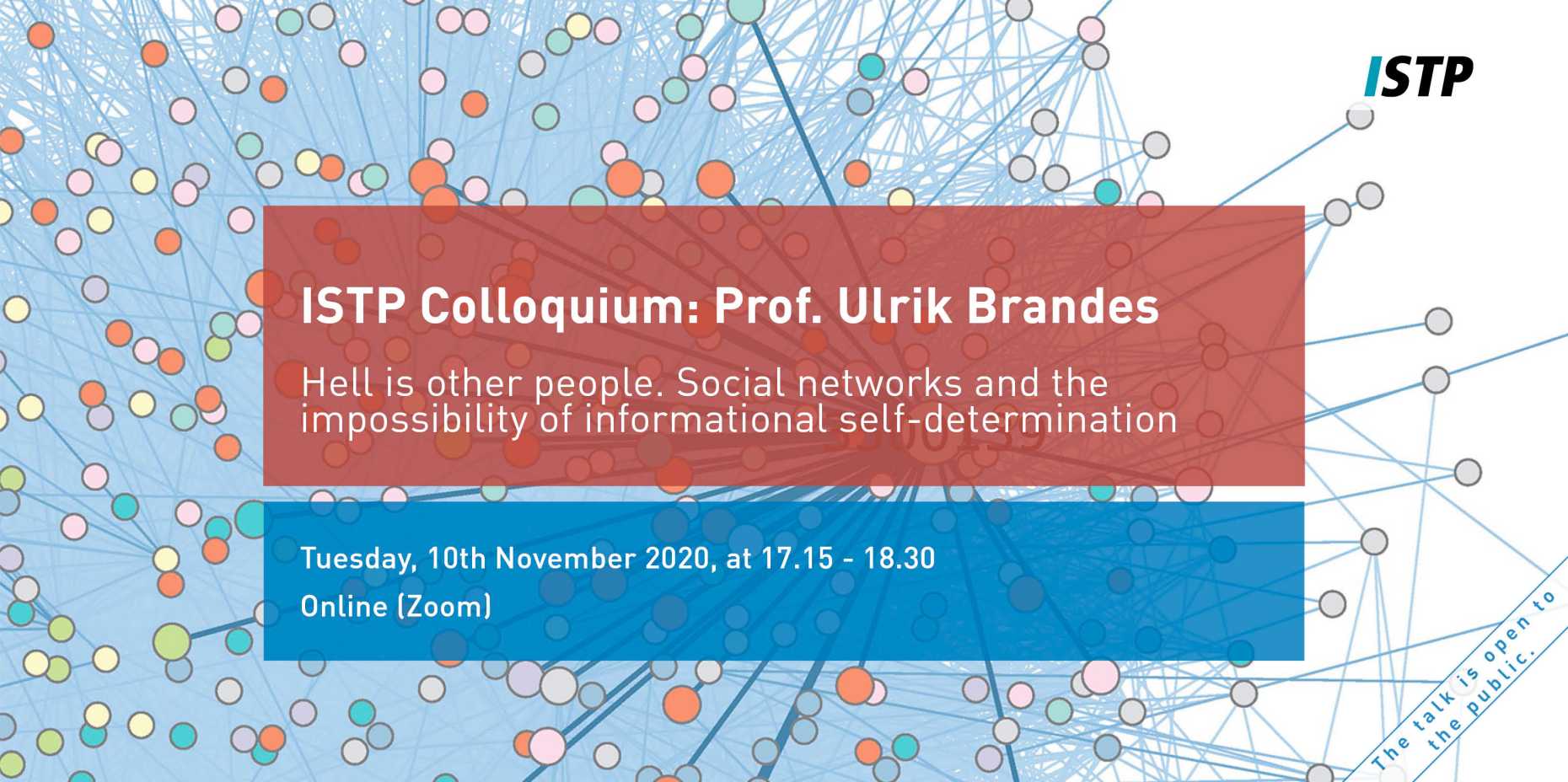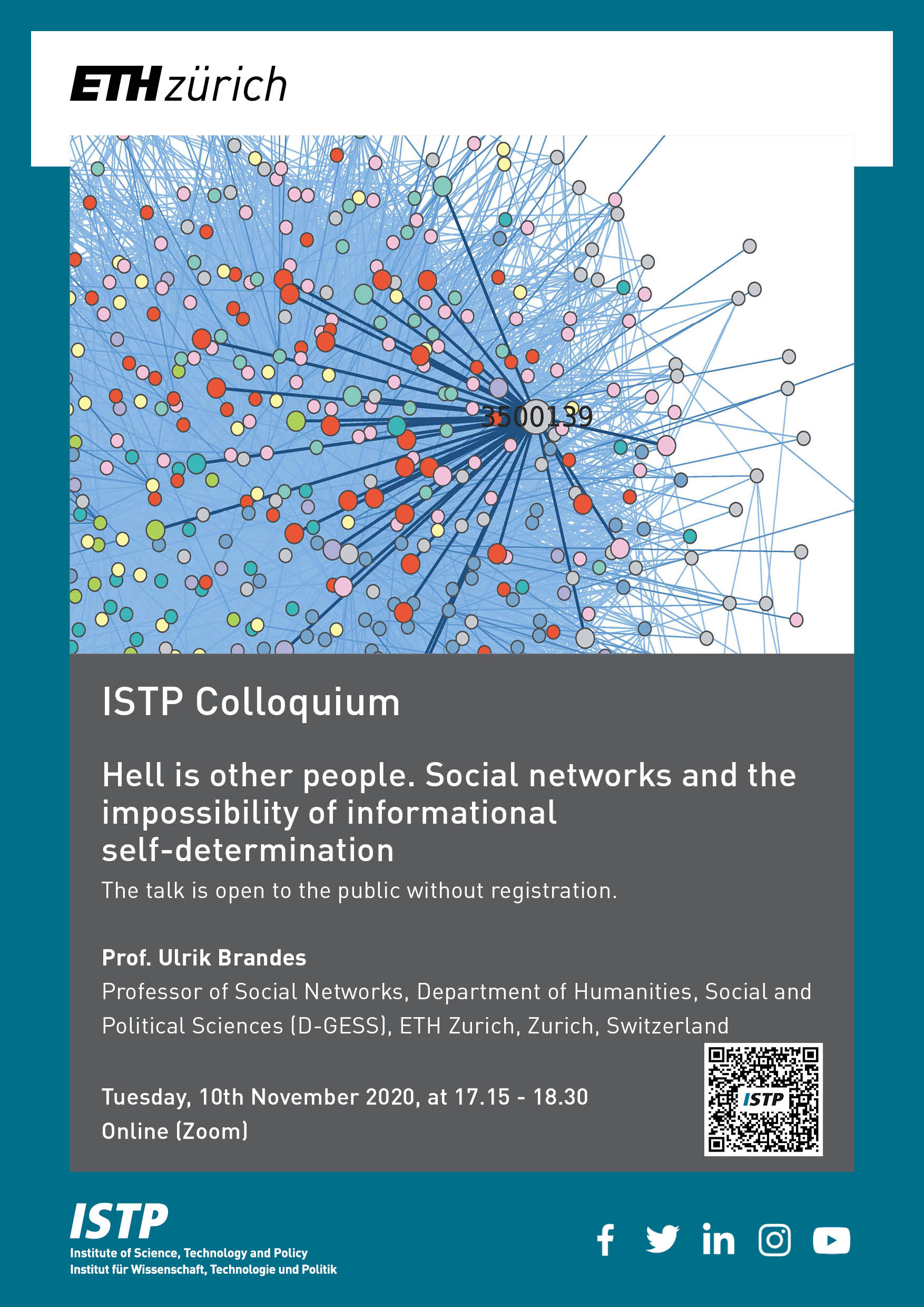ISTP Colloquium: Hell is other people. Social networks and the impossibility of informational self-determination
Informational self-determination is defined as the authority of an individual to determine disclosure and use of personal data. In our upcoming colloquium talk, ETH Zurich Prof. Ulrik Brandes elaborates on the meaning and scope of this concept as well as its implications for privacy regulations. He emphasizes that the presence of social regularities may enable the inference of information about an individual without that individual disclosing any of it.
Abstract
Informational self-determination is the authority of an individual to determine disclosure and use of personal data. Meaning and scope of this concept are contested, and the discussion about its implications for privacy regulations is ongoing. The competing interests of individuals and other, notably governmental and increasingly corporate, actors appear to be at the center of this discussion.
In his talk, Prof. Brandes will rather focus on the very possibility to determine disclosure and, as a consequence, use of personal data. Demographic and behavioral regularities facilitate the modeling of personal traits and preferences, which can then be employed to predict actions such as voting decisions and product purchases, or to discriminate individuals in terms of pricing or services rendered. Regulatory attempts to prevent non-consensual disclosure of demographic and behavioral data are therefore of utmost importance. But they are rendered futile in the presence of social regularities that enable the inference of information about an individual without that individual disclosing any of it. Social networks are a case in point.
- Find out more details about the Colloquium talk and the speaker.
- For further information about the Colloquium schedule of guest talks during the Autumn Semester 2020, please visit the Colloquia webpage.

